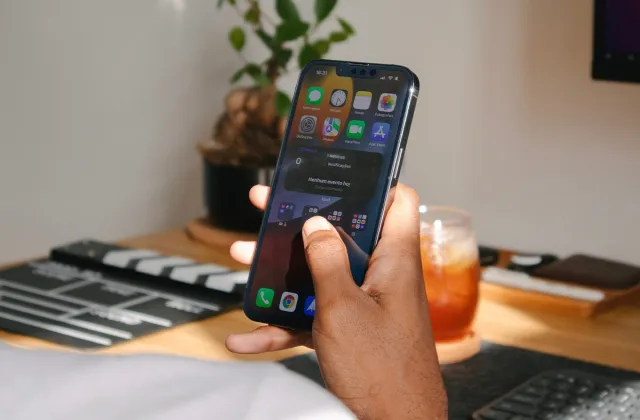iPhone users know how valuable this piece of technology is. After all, the price tag says enough about the quality of the device. While Apple is doing everything to keep its loyal users safe, they still need to do some work themselves. For instance, Apple can’t secure your iPhone unless you download the updates.
Keeping your iPhone away from pickpockets is one thing, but you should also be informed about various dangers you might encounter online. Cybercriminals are always after people’s personal information and data. Here is how to bring your security to the next level:
1. Install updates
Considering that iPhones are regarded as the safest smartphones out there, it is no coincidence that they release regular updates for iOS. Most updates will introduce new features, but they usually serve to patch any existing security problems and fix minor bugs.
Best of all, Apple will send you a notification letting you know that a new update is available. You can select the download time yourself. In case you missed it, check the general settings on your phone and see if there is an update waiting for you.
2. Set up two-factor authentication
Using two-factor authentication where available is highly recommended since it strengthens your accounts and prevents anyone from gaining access to it without your knowledge. Apple implemented this feature a while ago, so if you want to keep your account safe, set it up as soon as possible.
Two-factor authentication means you will be asked a security question when logging in to your account. You might be required to provide a code or answer one of the questions you have typed in when setting up this security feature. Nevertheless, two-factor authentication is a game changer for online security, so make use of it.
3. Use VPN
VPN is an excellent online security app that will mask your IP address, protect your privacy, and encrypt the data you send or receive. The latter is essential when using public Wi-Fi networks. Since they are unregulated and open to everyone, cybercriminals might lurk on at least one of the networks you use daily.
Setting up iOS VPN is not any different from using the same service on an Android phone. You will be asked for various permissions depending on which VPN you select. Just remember that even if you have a VPN on your phone, be mindful of what you click on when using a public Wi-Fi network.
4. Don’t jailbreak the phone
Jailbreaking iPhones was extremely popular a while ago, but it seems people are now more aware of all the dangers that come with third-party apps. Of course, it doesn’t mean someone won’t try to jailbreak their iPhone today, and it is good they know what to expect. So what does a jailbreak mean? The simplest explanation is that jailbreaking will enable you to install apps from various sources, not only from the App Store.
While this might open a world of possibilities, it is not worth it. Third-party apps are unsafe and could endanger your privacy and personal information. You could also go through your App Library every month and delete the apps you no longer use. It will free some space on your iPhone, make you more organized, and perhaps remove apps that could be unsafe.
5. iPhone and passwords
A strong iPhone passcode will protect your device from thieves, but they might see you typing in the numbers, memorize them, and then steal the phone. They can lock you out of your iCloud account and completely take over your information. Therefore, use Face ID or Touch ID when in public spaces. If you are having problems with these features, complicate the passcode as much as possible.
The device has another option for online accounts – to generate passwords and store all of them on iCloud Keychain. This feature will keep all the passwords in one place for you to use. One detail that could compromise your safety could be password auto-fill. Memorizing passwords for all your accounts is difficult, and many users see the auto-fill feature as helpful, which it is. However, storing your credit card information in Safari is not clever, and switching off auto-fill is better.
6. Try out Lockdown Mode
Released in iOS 16, Lockdown Mode is a feature designed for people who might be frequent targets of cybercriminals because of their profession, position, or line of work. Once you enable Lockdown Mode, the iPhone won’t function normally. Instead, you will notice many changes designed to keep intruders out. For instance, you won’t be able to see or open any attachments or links in your emails or messages.
Web browsing will also be difficult since Lockdown Mode blocks images, some fonts, etc. That said, most users won’t be in a situation where they need to use this feature. However, it is good to know you have it as an option if you suspect cybercriminals have targeted you.
